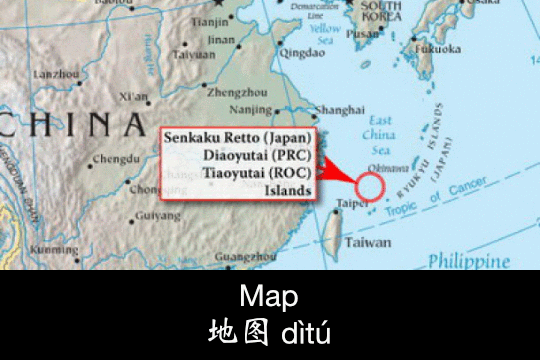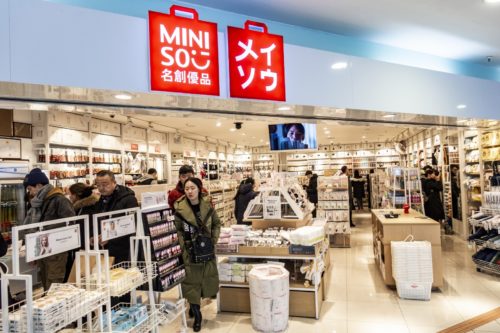Another foreign company in trouble with China for geographical sins


The People’s Republic has always exerted tight control over maps and names of geographical features within its borders. I remember buying a map of Kashgar, Xinjiang in 1996 that had an inset showing the small city’s location in China; the inset was twice as big as it needed to be, in order to accommodate the Nine-Dash Line, the huge “cow’s tongue” of territory China claims in the South China Sea.
The Party’s absolute insistence on rectifying maps and place names is now spreading beyond its borders, starting with the softest of targets: foreign companies that do business in China or sell to Chinese consumers. In recent weeks, Marriott hotels, fast fashion retailer Zara, and a number of other companies have come under fire from the Chinese government for geographical sins, such as websites that list Taiwan as a country. Today, Asahi Shimbun reports that “Japan’s Muji retail chain was forced to pull a catalog in China that left the disputed Senkaku Islands off a map after receiving a complaint from Chinese authorities.”
- Currently under Japanese control, the Senkakus, or Diaoyu Islands 钓鱼岛 are claimed by China. They have become an emotional symbol for Chinese nationalists, including in Taiwan and Hong Kong, as well as right wing Japanese.
- The catalog was distributed in China by Muji stores, operated by Ryohin Keikaku of Tokyo, which said it “scrapped the catalog after receiving a directive from Chinese officials in October.”
- China’s foreign ministry told foreign companies to “respect China’s sovereignty” in response to the news about Muji, according to the Associated Press.
- “Tokyo has communicated its concerns to Beijing” over the order to pull the catalogues, says the South China Morning Post, quoting Japanese Chief Cabinet Secretary Yoshihide Suga: “There is no territorial dispute to be settled over the Senkaku Islands. We can by no means accept the measure based on China’s unilateral claims.”
772 million internet users
That’s the latest official count from China Internet Network Information Center (CNNIC) (in Chinese), meaning 55.8 percent of the population is online, by mobile or desktop. The country added just over 40 million new internet users in 2017. There’s a good summary of the CNNIC report in English at TechNode.
Dog bites man
The Foreign Correspondents’ Club of China (FCCC) — an association of Beijing-based journalists that counts among its members many of the most respected reporters in China — put out the results of a survey of its members about reporting conditions in China. To sum up using a tweet from the FCCC: “the Chinese government has intensified its efforts to restrict and intimidate foreign journalists.”
Asked about the FCCC report at a Foreign Ministry briefing, a spokesperson responded as follows (per the Foreign Ministry’s own report):
I have yet to see this so-called report you mentioned, and I am also wondering whom this so-called organization could represent…If any of you believes that the FCCC has spoken your mind, or you find yourself approving the contents of this report, you may raise your hand and let me know.
(No hand raised)
No one.
Then, you can tell the FCCC that foreign journalists present here today do not agree with its report’s conclusion, so it has in no way reflected the genuine opinion of almost 600 foreign journalists stationed in China.
The confusion of Great Britain
British Prime Minister Theresa May began her three-day visit to China today in Wuhan (read about it here on The China Project). The South China Morning Post says “her main focus will be on evaluating opportunities to expand the trading relationship between Britain and China as the latter opens up its markets,” but judging from the headlines, it’s not clear at all what Theresa May hopes to, or could achieve during her visit:
- “Theresa May declines to endorse China’s Belt and Road initiative,” says the FT, while the China Daily said Britain is a “natural” Belt and Road partner.
- Two competing agendas that Beijing will not find compatible: May is focused on the post-Brexit future, according to the Washington Post, and CNN says “China-U.K. trade is tiny,” which the Prime Minister “needs to change.” But May “pledged to raise Hong Kong and human rights with China,” reports the Guardian, and the Financial Times says (paywall) she is warning China “to play by global rules.”
- “Theresa May’s awkward Chinese visit shows Britain’s weakened clout” is how the Economist summed up (paywall) the British PM’s trip.






